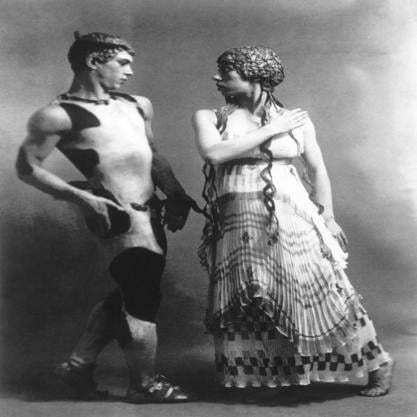Article
Nijinsky, Vaslav (1889–1950) By Järvinen, Hanna
Article
Vaslav Nijinsky was a Russian dancer and choreographer of Polish descent. He achieved international renown as the star of Serge Diaghilev’s Ballets Russes Company between 1909 and 1916. A dancing prodigy, Nijinsky was lauded as the best male dancer of his generation. From 1912 onwards, his choreographic modernism inaugurated the use of simpler movement language that de-emphasized virtuosity with L’Après-midi d’un Faune (Afternoon of a Faun, 1912), Jeux (1913), Le Sacre du Printemps (The Rite of Spring, 1913) and the little-known Till Eulenspiegel (1916), created during the company’s second North American tour.
Nijinsky refocused attention on the choreographer as the author of dance, which had great influence on how dance as an art form was understood and discussed after World War I. Because Nijinsky was institutionalized for mental illness in 1919, none of his choreographies survived intact and were, for decades, considered artistically irrelevant. This attitude began to change in the late 1980s, when new research and reconstructions of Nijinsky’s choreographies helped scholars and audiences to rethink his place in dance history, and his works are now considered to be important examples of modernism as well as precursors to both contemporary ballet and contemporary dance, more generally.

